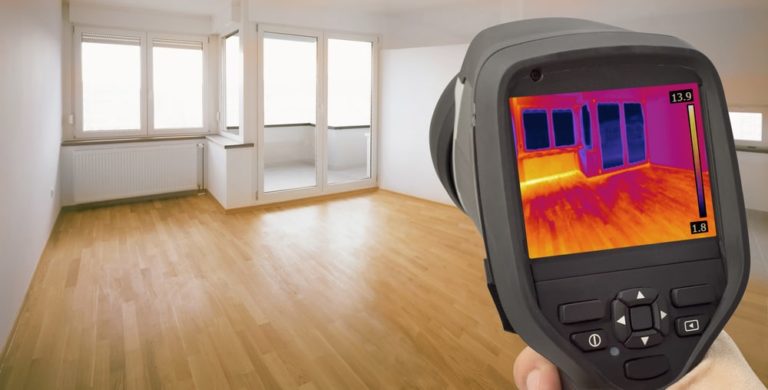If there is one reliable fact in this world, it is that the costs of energy will only keep rising. Homeowners certainly know this fact well as prices have risen significantly in the past 20 years and will keep doing so. Which is why it is very important to maintain energy efficient homes. Even when these costs temporarily drop, they inevitably rise again in summer months for cooling and wintertime for heating. With hardwood flooring being one of the top features home buyers look for in their next residence, many wonder, “Are hardwood floors energy efficient?”
While no type of flooring will substantially cut your energy costs, there are ways to improve home comfort and enhance energy efficiency with these surfaces. Below are some tips for that as well as to answer that question of, “Are hardwood floors energy efficient?”
Contents:
Enhance Energy Savings through Draft-Proofing
Draft-proofing is one of the best ways to answer, “Are hardwood floors energy efficient?” You can save between $25 and $40 per year through this tactic. Couple draft-proofing with other methods likes turning off lights, appliances and electronics when you are not using them and your energy bills will decrease slightly.
Draft-proof for energy efficiency by installing door sweeps at the base of each door in your home. These sweeps block drafts, whether from the outdoors or inside draftiness. They can help each room retain its own heat or cooling to cut down on lost energy and your ultimate heating or air conditioning costs.
Another draft-proof method is use of area rugs to keep your rooms warmer. Area rugs also help with acoustics, keeping sounds from bouncing from the hard surfaces.
Fill Gaps In Your Hardwood Flooring to Make it More Energy Efficient
Filling gaps in your hardwood floors is another great tip to answer, “Are hardwood floors energy efficient?” You can save between $75 and $90 each year on your energy bills if your wood floors and skirting have good insulation. Of course, old hardwood floors typically have gaps. Suspended wood floors typically have no insulation, as well.
Hardwood flooring needs space to expand and contract according to environmental conditions. This is why you should never fill every gap. But after ensuring your flooring has a good expansion gap around the perimeter, you can fill drafty gaps. This is true for even historic hardwood floors.
To fill gaps in your hardwood flooring, use a natural resin filler mixed with sawdust from stained wood of the same species. This color matching will prevent visible flaws. Of course, you can also call upon your hardwood flooring pros at Tri Point Flooring in the Raleigh area to do this work for you. After filling your floor gaps, your floor feels less drafty and offers better energy efficiency.
Ensure Your Hardwood Floors Are Insulated
Insulation’s primary purpose is to provide energy efficiency, sound absorption or both. In the case of hardwood flooring, insulation fulfills both objectives. When you want to install new hardwood floors, it is important to ensure you first install an insulating underlay over the concrete foundation or other subfloor.
It is important to note one issue related to insulating your hardwood floors, however. If the room is above a heated room, not insulating the floor enables heat to rise from the lower room into the upper one. This can actually reduce your energy costs. For a second-floor room with hardwood flooring over an unheated space like a garage, insulation is the right choice.
In this answer to “are hardwood floors energy efficient,” floor insulation can save you about $45 to $90 per year, depending on the structure and size of your home.
Heat Your Hardwood Floors
Part of the answer to “are hardwood floors energy efficient” comes from custom features, such as whether you have under-floor heating. An under-floor heating system lies beneath the hardwood flooring to keep the surfaces toasty underfoot. Because heat rises, these systems also help heat the entire space in which you have wood floors. Obviously, this is a choice you have to make when installing your new floors. It also requires an upfront investment for a long-term savings on your energy bills.
Additionally, under-floor heating works best under engineered hardwood floors, not natural hardwoods. This is because the heat and cool-down effects cause natural hardwoods to expand and contract. Engineered hardwoods will not buckle, warp or cup under these conditions.
Make Your Hardwood Floors the Most Energy Efficient They Can Be
If you have questions like “are hardwood floors energy efficient,” talk to your Raleigh area professionals at Tri Point Flooring. We enjoy helping our current and new customers get the most from their hardwood floors. We will also help you select the best flooring for your home’s ideal energy efficiency and aesthetic appeal. Call us today at (919) 771-7542.





